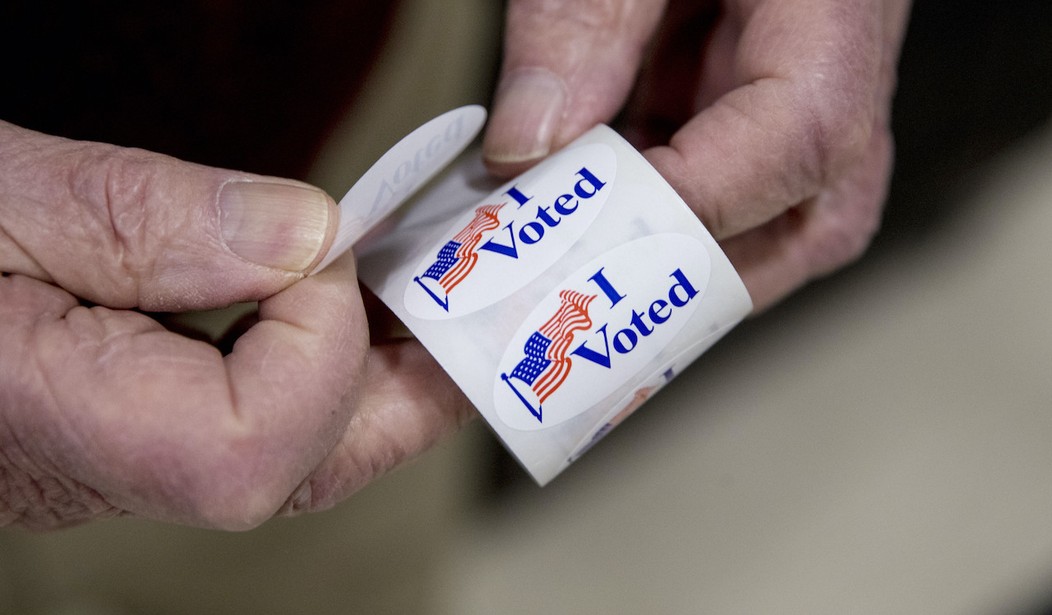While I was at CPAC last month, I had the opportunity to speak with Republican strategist Saulius “Saul” Anuzis about the National Popular Vote Compact (NPV). Anuzis supports NPV and is actively trying to get more conservatives on board. To further the debate, I recently spoke with Trent England, the founder and executive director of Save Our States, about NPV, why it’s a bad idea for our union, and why conservatives shouldn’t support it.
Under NPV, states would award all their electoral votes to the presidential candidate who wins the popular vote. So, if a Republican wins the national popular vote, California, which passed a law joining the compact in 2011, would award all of its electoral college votes to the Republican candidate.
According to England, the current system is “actually is a very good way to elect the president.” He also says that the NPV compact is “poorly thought out and probably unconstitutional.”
England notes that the Founding Fathers “rejected a direct election because it would give too much power to the biggest states” and designed the Electoral College as a remedy.
“The Electoral College still does this,” England insists. “It puts an upper limit on how much power any one state or city or media market can have in presidential elections. This in turn spreads power across the country.”
Related: Is This the Conservative Case for the National Popular Vote?
England notes that most democratic nations use a similar process at the national level, “either a parliamentary system or their own version of an electoral college” rather than a direct national election.
“Both of our major political parties are active in every state, in part because the Electoral College makes it very hard for a regional candidate ever to win the presidency,” England says. “Parties are constantly looking for states to ‘flip,’ with Democrats eying Arizona, Georgia and Texas and Republicans looking to Michigan, Minnesota, Pennsylvania and Wisconsin.”
“As recent elections show, the parties have had some successes and some failures,” he continues. “While things sometimes look very predictable in the rearview mirror, they’re much less certain in the middle of a campaign. And whatever the outcome, all states, ‘swing’ and ‘safe,’ do matter.”
England also disputes the notion that NPV can help Republicans.
“The NPV plan was developed by Democrats, the NPV campaign is controlled and funded by Democrats, and only blue states have joined the NPV compact,” England pointed out.
What about the argument that there are millions of conservatives who don’t vote in California because the Electoral College system doesn’t make it worth their while to vote in a presidential election?
England says this isn’t true and cites the 2021 California recall as proof. “Republicans were motivated to kick out Governor Gavin Newsom, but he won, 62% to 38%. The margin in the 2020 presidential race, 63% to 34%, was nearly the same.”
“The truth is that voters turn out for many different reasons,” explains England. “There are ‘safe states’ with high turnout, like Massachusetts and Vermont, and swing states that tend to have lower turnout.” This affects both Democrats and Republicans, and England argues that there is “no reason to think it disadvantages one party more than the other.”
NPV has other problems as well, England says. In fact, he told me that one of the originators of the compact believes it could cause multiple electoral crises because of how poorly written it is.
The issue is that election laws and procedures vary by state, and NPV ignores the practical issues likely to come up, including recounts and differences between state standards and procedures, such as ranked-choice voting and voter fusion.
“Would California’s Secretary of State really accept vote totals from Texas that would result in all of California’s electoral votes going to a Republican?” asks England. “The only thing the compact guarantees is more distrust, uncertainty, and litigation around presidential elections.”
Considering the flaws of NPV, it’s actually closer to being a reality than you might think. According to Save Our States, it’s “72% of the way to nullifying the Electoral College. We need to take action now.”










